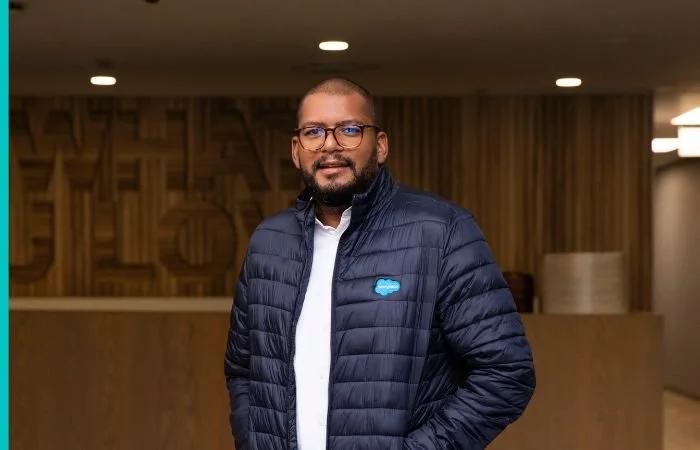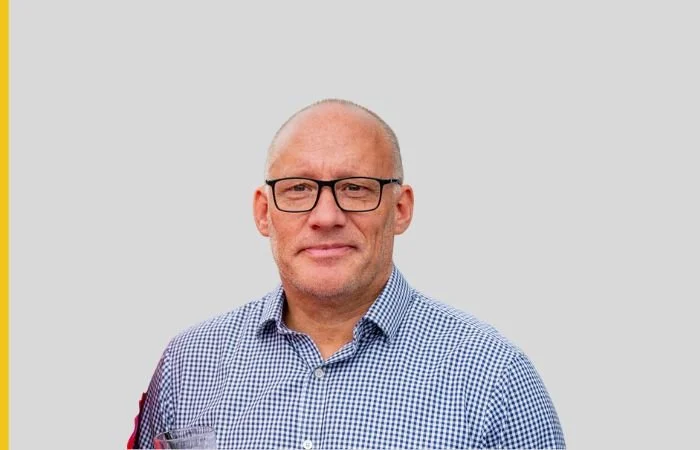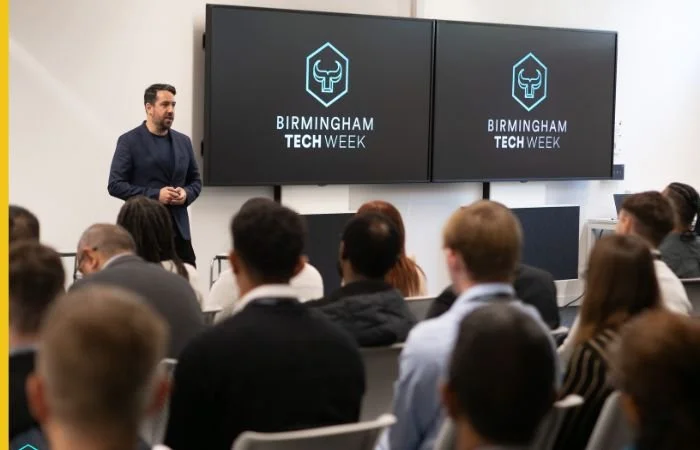Meet the Managing Partner of Isobel
Tell me a little about Paul Houlding?
I studied law originally, but quickly realised it wasn’t right for me, so I joined a graduate scheme at Saatchi & Saatchi. I continued working for some of the UK’s biggest ad agencies before making the big leap in 2003 and setting up my own agency with three other founding partners.
Who or what inspired you to get started?
It was partly down to being in the right time and place. I was working at an agency with my now-partners, but the emphasis there seemed to be on everything but creativity. Plus, I had always wanted to start my own agency, even before I joined Saatchi & Saatchi – I’ve appreciated the power of advertising since I was a teenager.
What was it about your fellow founders that marked them out as the right match?
The main driver for all of us is creativity and good, intelligent ideas. Our skill sets are complementary and between us we cover all the core disciplines. Apart from one of us, who had to leave for health reasons, we’re all still at isobel 14 years on. That’s almost unheard of in this industry and gives us a real strength.
How do you set yourself apart from other businesses in your industry?
We set ourselves apart initially in how we named the agency. At that time the convention was to use surnames, which would then get abbreviated into completely forgettable initials. We took a different route. We all happened to have daughters with the name Isobel – Francesca Isobel, Phoebe Isobel, Flora Isobel and Isabella. It just stuck. It explains our culture – to be a creative agency, you need a childish outlook on life, a wide-eyed optimism and eagerness. isobel is like a mischievous little girl who goes around disrupting things.
What’s the single most important decision you made?
To just go for it. There were certainly ‘gulp’ moments, but we stuck to our guns and were true to ourselves. We never wanted to be a ‘big, sexy London agency’. Our aim was to do great work and transform people’s businesses. We’ve always kept creativity at the heart of everything.
How did you conquer moments of doubt – what pushes you through?
You just keep going. Everyone has doubt – just keep telling yourself you’re great! It’s very different doing things on your own, I imagine. But when you have partners, there’s always someone to talk you out of a moment of doubt.
Who is your target audience?
We’re very good with clients who need supercharging. We call them mission clients – people who want to get out of bed in the morning and make a difference. Those are the businesses we love, and we’ll go to the ends of the earth for them because we take their cause and we live and breathe it.
What is your top tip for young entrepreneurs who are ready to launch their own business?
Take some risks and get on with it! Risk only gets tougher to deal with as you get older – it never gets easier. Your whole lifestyle is geared around whatever you earn, and your responsibilities will only become greater. Try not to worry so much.
Who would you have on your voicemail?
Morgan Freeman. His voice has gravitas, he sounds different and he’s dead cool.
What’s first in the morning: phone, book, laptop or me time?
Nothing to do with work. I get straight onto WhatsApp to find out what my kids have been up to! Then it’s the post followed by checking the news on the BBC.
What plans do you have for isobel over the next 24 months?
In a nutshell, we’re looking to raise our profile and double our turnover.
What’s the most important question entrepreneurs should be asking themselves?
They should be asking how they can make their product or service ‘one of one’. If you are the only person in the world who sells leather shoes, you’ll get all the business. So, ask yourself, ‘How to I package my product or service so that I am the automatic choice?’ Rather than differentiating yourself from other people within a category, define your own category.
How do you believe the evolution of tech will affect your industry over the next ten years?
In ways that I have absolutely no idea about. When we started in 2003, digital hardly existed. But in just 14 years, we’ve experienced the fastest pace of change the world has ever seen, and it’s only going to speed up.
How do you recharge?
Over the years I’ve taught myself only to think about stuff when I want to think about stuff. I do as little as possible – walk the dog, go to theatre and cinema, spend time with my family.
What habits do you think have helped you to become successful?
Learning to visualise a positive outcome is a good habit to get into. I doodle a lot, too. I have my best ideas when I’m doodling. People think it’s a sign of boredom but it’s not – it allows your brain to be more creative and enables you to think laterally. You must be careful in meetings, though – people might think you’re bored or just plain rude!
What are your thoughts on networking to build your business?
Hateful but necessary. It does work, and some people are great at it – they spend 30 seconds with a person and move on. I’m not one of those people. Others in the agency are better at it than me, so I let them get on with it.
How did you build such a great culture at isobel?
The right people create the right culture in an agency. We employ the top talent, but they must be people that we’d like to go for a pint with down the pub. We also do stuff that we enjoy, like hosting comedy nights and parties for family, friends and clients.
What would be your top marketing tip?
Build awareness. The more people who know about you, the more opportunities you’ll have. It’s simple, really.
What are your thoughts on failure?
You can learn a lot of lessons from difficult times, but I don’t want to go there. Failure is overrated – avoid it!












































































































